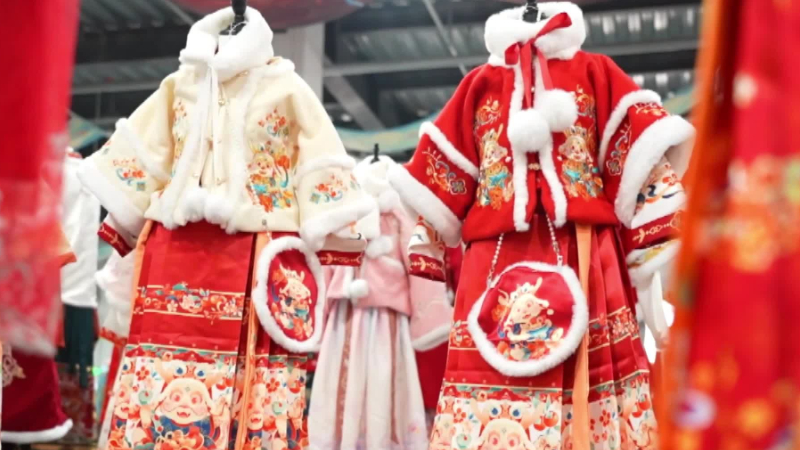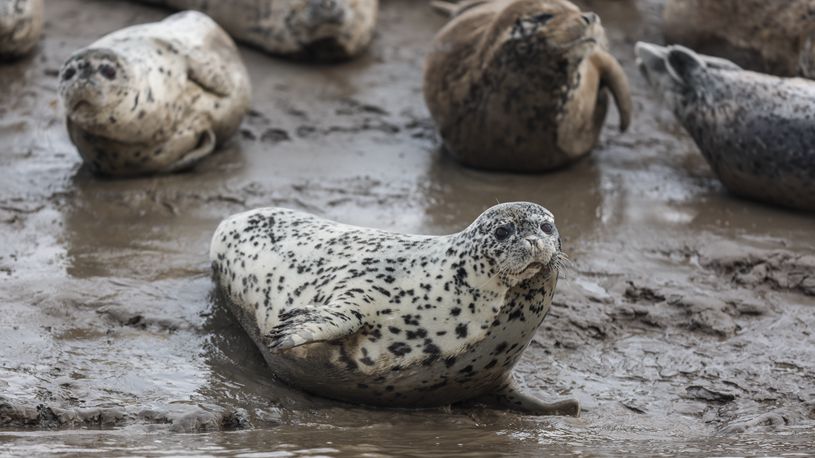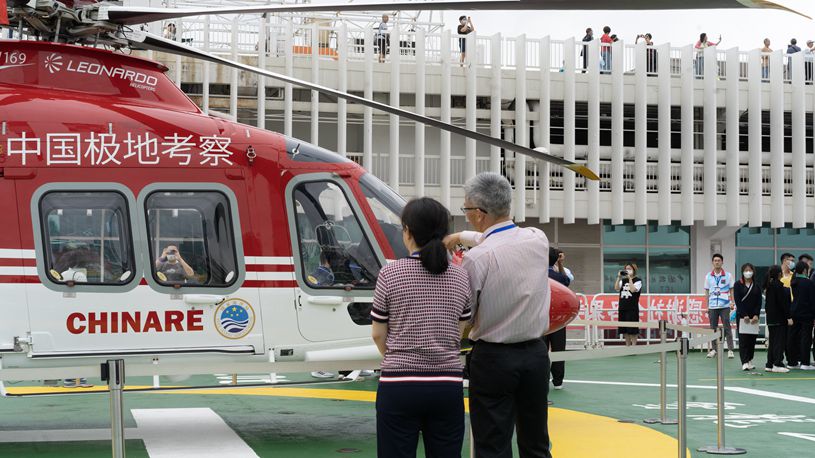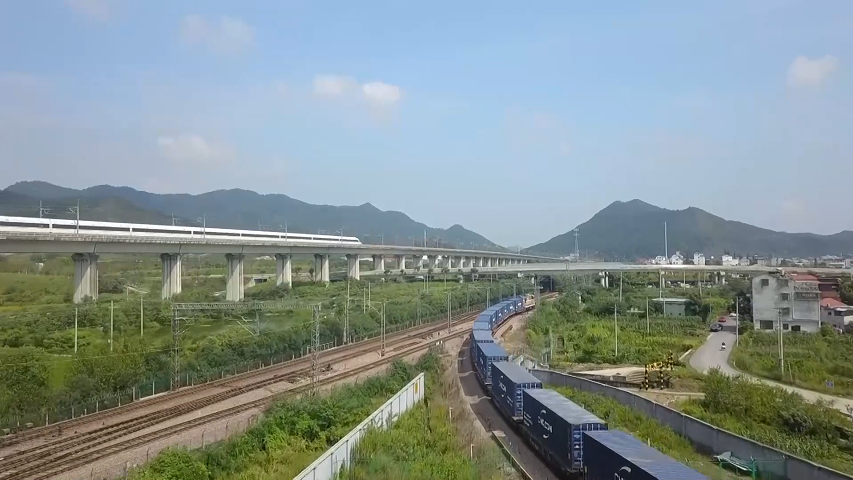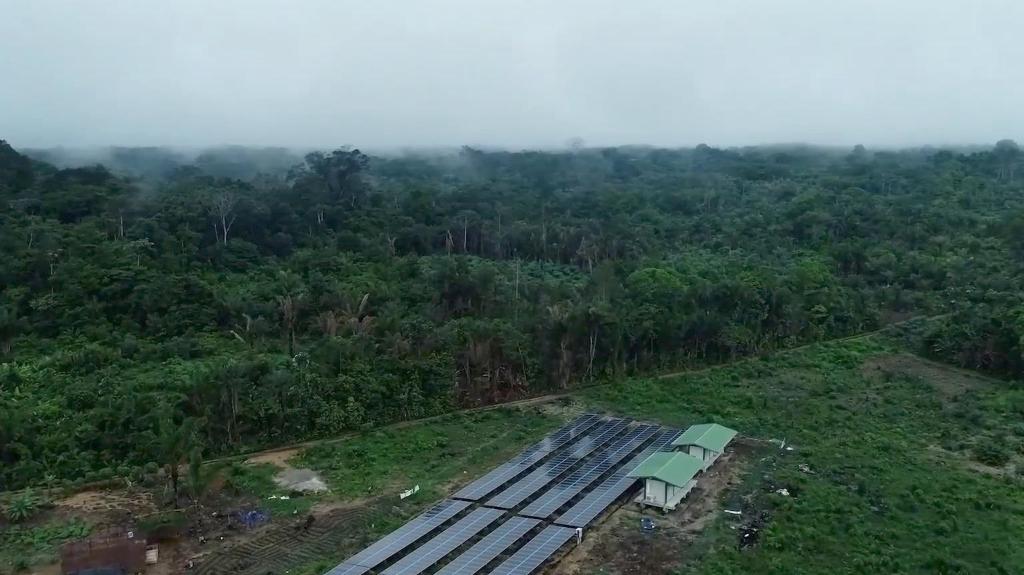Analysts warn that the developments will see Japan further relax its pacifist establishment and enhance militarization, fuel tensions and confrontation in the Asia-Pacific region, which will not only undermine regional peace and security, but also inevitably backfire on its own interests.
TOKYO, April 11 (Xinhua) -- Japanese Prime Minister Fumio Kishida on Wednesday held talks with U.S. President Joe Biden during a visit to Washington, agreeing to upgrade bilateral security treaty and deepen cooperation in military and other fields.
They announced new initiatives on technology and defense, including an upgrade of allied command-and-control arrangements for American and Japanese armed forces, new investments and partnerships on space, artificial intelligence, quantum technology, semiconductors and clean energy, according to U.S. media reports.
Analysts warn that the above developments will see Japan further relax its pacifist establishment and enhance militarization, fuel tensions and confrontation in the Asia-Pacific region, which will not only undermine regional peace and security, but also inevitably backfire on its own interests.
POLITICAL CALCULATION
Kishida's high-profile U.S. trip, in the eyes of the Japanese public, bears the intention of salvaging his support rate by scoring diplomatic points.
Reports from multiple local media outlets showed that approval ratings for Kishida's cabinet has remained in the range of 20-30 percent for five consecutive months, near the ultra-low danger zone for quite some time.
A monthly opinion poll conducted by national broadcaster NHK showed Monday that the approval rate for the Kishida cabinet dropped by 2 points to 23 percent.
While the recent slush fund scandals of multiple factions of the ruling Liberal Democratic Party (LDP) have become a major headache for Kishida, soaring prices and weak economic vitality have also become important factors for the public to oppose his cabinet.
With the LDP head election scheduled for September approaching, Kishida urgently needs to gain political credits to elevate current sluggish public approval.
Although it is widely believed in the Japanese society that exaggerating external threats and strengthening the Japan-U.S. alliance are usual means to woo public support, people may not always buy it.
"Kishida is putting the cart before the horse by focusing on the United States regardless of the troubled domestic situation," one netizen wrote on social media.
BALLOONING MILITARY AMBITION
During Kishida's visit, Japan and the United States intend to carry out "the largest upgrade in more than 60 years" of the U.S.-Japan Security Treaty, reorganizing the U.S. Military Command in Japan in conjunction with the "Integrated Command" that Japan plans to establish at the end of 2024 to unify the command of the Army, Navy and Air Self-Defense Forces, according to Japanese media reports.
The two sides are also expected to reach a series of agreements on defense equipment cooperation, including the establishment of a new consultation mechanism to discuss joint research, development and production of defense equipment, and allowing large U.S. ships to be repaired in Japan.
National news agency Kyodo reported that building a Japan-U.S. low-Earth orbit satellite network, intercepting hypersonic gliding vehicles, and strengthening technical cooperation among Japan, the United States and Australia on unmanned wingmen will be included in the Japan-U.S. joint statement.
Analysts here point out that such actions would become another step in Japan's loosening restraints on its military, as it would help the Japanese Self-Defense Forces further strengthen their command and joint operations with the U.S. military, and help Japan enhance its defense industry and strike capabilities.
Japan's LDP has long hoped to get rid of Article 9 of the pacifist post-war Constitution, which restricts the development of the country's military forces, and has continued to break taboos through small changes. Recently, Japan has been making frequent moves on the military front, including significantly increasing its defense outlays and strengthening the so-called "counterstrike capability" or "enemy base strike capabilities."
In late March, the Japanese government approved the revised guidelines of the "three principles on transfer of defense equipment and technology" in the latest move away from the country's postwar pacifist principles. The contentious decision marked another major shift in the country's security policy by allowing Japan to export lethal weapons it coproduces to third countries for the first time.
Takeo Akiba, secretary general of Japan's National Security Secretariat, said in an article published recently by the Washington Post that Japan's policy of not promoting arms exports to other countries "has proved increasingly unsuitable" and an "epic change" is underway in the country's security strategy.
Washington supports Japan relaxing military regulations out of its own strategic interests. Japanese newspaper Yomiuri Shimbun reported that Biden will give "full affirmation and praise" to Japan's recent military moves at the Japan-U.S. summit. It is obvious that Japan is taking advantage of the U.S. support to speed up loosening its postwar military restraints.
Regarding Japan's recent military gestures, another Japanese newspaper Asahi Shimbun commented that "Japan's image as a peaceful country is being questioned."
Atsushi Koketsu, an emeritus professor at Yamaguchi University of Japan, said that Japan's diplomacy and defense are increasingly deviating from the pacifist constitution.
THREAT TO PEACE
According to Kyodo News, a joint statement from the trilateral summit of Kishida, Biden and Philippine President Ferdinand Marcos on Thursday will touch upon the security partnership among the United States, Japan, Britain, Australia and the Philippines.
On Monday, the defense ministers of the United States, Britain and Australia issued a joint statement that they are considering cooperation with Japan on AUKUS Pillar II advanced capability projects.
Lu Yaodong, deputy director of the Institute of Japanese Studies at the Chinese Academy of Social Sciences, noted that Japan embraces the U.S. global strategy in many aspects. Militarily, Japan has expanded the coverage of the Japan-U.S. alliance from East Asia to the world. Economically, Japan has been cooperating with America in "decoupling and delinking" from China and building a "small yard, high fence."
Currently, America regards China as a "strategic competitor" and pursues the so-called "Indo-Pacific Strategy" in the Asia-Pacific region, attempting to draw regional countries into a small circle and using camp confrontation to contain and suppress China. Meanwhile, Japan is utilized as the most important ally in promoting the U.S. strategy.
Japanese Ambassador to the United States Shigeo Yamada said publicly in Washington on Monday that the leaders of the two countries share the same view on the overall concept of relations with China.
William Jones, a former White House correspondent for U.S. newsmagazine Executive Intelligence Review, said that Biden is trying to use Kishida's state visit and the trilateral summit to consolidate the so-called "Washington-Tokyo-Manila axis," with Japan being the most "loyal" U.S. follower.
Analysts worldwide believe that the Asia-Pacific region is a highland for peaceful development and common prosperity and should not become a chess game among major powers. In exchange for the U.S. support in untying military constraints, Japan intensively engages in camp confrontation siding with Washington, which not only seriously endangers regional peace and stability, but also ultimately undermines Japan's own security and development.
Stopping militarization and promoting friendly relations with neighboring countries are the most favorable security policies for Japan, Koketsu said. ■


